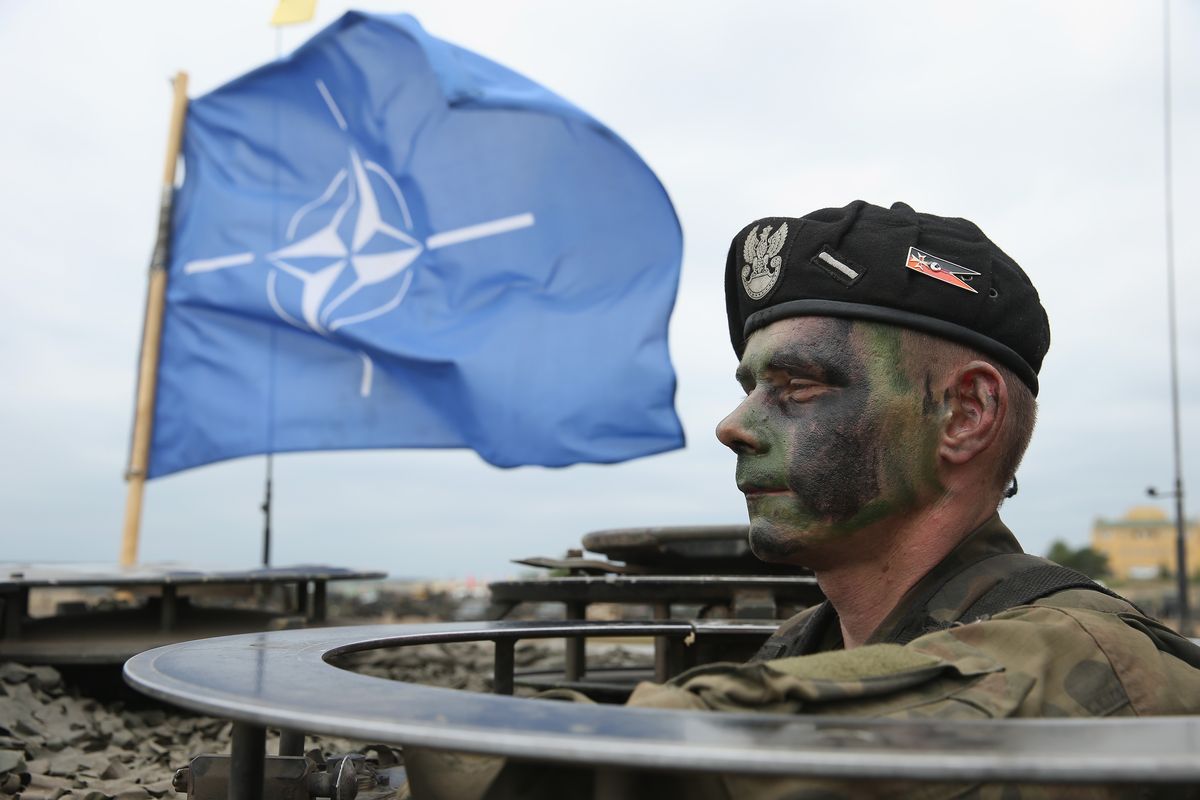From its founding in 1949 until the start of NATO’s proxy war against Russia in 2022, the principal troublesome issue for the Alliance was Washington’s repeated calls for greater burden-sharing on the part of its allies. Discontent on Washington’s part emerged early and often. President Dwight D. Eisenhower’s Secretary of State, John Foster Dulles, warned NATO’s European members that unless they did more to enhance collective defense the United States might be compelled to reassess the extent of its commitment to Europe’s security. That warning led to repeated promises of greater defense efforts on the part of the allies. Those promises were rarely followed by meaningful actions, however.
Such continued manifestations of free-riding generated periodic US calls to reduce Washington’s overall military commitment to Europe. That sentiment reached a crescendo in the late 1960’s and early 1970’s. The most serious substantive effort took the form of the Mansfield, Amendment, which proposed to reduce the US troop presence in Europe by approximately one- third. The principal sponsor was Senate Majority Leader Mike Mansfield (D-MT). Both Lyndon Johnson’s and Richard Nixon’s administrations waged a vigorous fight against the proposed legislation. Henry Kissinger, Nixon’s national security advisor, eventually led a successful fight against the proposal. Nevertheless, calls for similar action continued during subsequent administrations. Donald Trump was especially vocal in his demands for the Europeans to engage in more substantial burden-sharing.
NATO burden-sharing, however, remained much more prominent in the realm of rhetoric than substance. In 2006 and again in 2014, Alliance members promised to devote a minimum of 2 percent of their annual gross domestic product to defense. At the time that military tensions between Russia and Ukraine exploded into full-scale warfare in February 2022, those promises had remained largely unfulfilled. Despite NATO members embracing a highly confrontational policy toward Moscow, only 11 of the 31 NATO members were fulfilling their pledge of 2 percent GDP for defense. Russia’s invasion, however, led to a more serious commitment to burden-sharing. The nature of that concept also changed in two ways. Two prominent neutral powers now abandoned neutrality and applied to join the alliance. Both Sweden and Finland were prepared to join the Western bloc directed against Russia. This was a crucial development, especially for Sweden, which had been strictly neutral in international conflicts for nearly two centuries. Stockholm had even managed to avoid entanglement in the two world wars. Helsinki’s neutrality was far less voluntary. It occurred during the Cold War only because of the Soviet Union’s intense pressure. In any case, the addition of two significant military players to NATO has increased a dangerous rivalry between two competing blocs.
The other significant change in the burden-sharing concept was that previously, the NATO allies seemed to regard Washington’s desire for greater burden-sharing largely in financial terms. In other words, to both the Europeans and the United States, burden-sharing was seen primarily in terms of the European members paying a little more for policies that remained under Washington’s firm control. Now, however, burden-sharing seems to mean more involvement on the part of Europe’s NATO members with respect to weapons and strategic initiatives. Not only have those countries become more responsive to Washington’s calls for military assistance to Ukraine, several of them, including Poland, Romania, and the Baltic republics, have been taking the lead and pushing the United States to take more action against Russia.
Washington seems content with this arrangement, which amounts to a US proxy war strategy, with Ukraine handling the actual fighting against Russia and with Kiev receiving ample weaponry from NATO members. That military hardware has been coming as much from certain European alliance members as from the United States. Moreover, there has been a steady escalation in NATO’s willingness to supply ever more lethal armaments to Ukraine. For example, early in the fighting, NATO countries were primarily providing weapons with limited reach and lethality. Both aspects have gradually changed. One early escalation was to provide Ukraine with sophisticated anti-tank weapons. Now, weapons shipments even include longer range missiles capable of striking targets inside of Russia. Several allies have successfully pressured Washington into providing more destructive weapons that Biden administration leaders initially refused to authorize. Patriot air-defense missiles and M-17 Abrams tanks are two examples of such escalation.
There are growing rumors of another round of escalation that could be even more dangerous. Some alliance leaders, especially in NATO’s Eastern members, are no longer ruling out providing “volunteers” to help Ukraine in direct combat roles. Such a move would be extraordinarily dangerous and greatly increase the risk of armed clashes between Russia and NATO forces that could lead to World War III. There are media reports that as many as three thousand armed volunteers from foreign countries are already in Ukraine assisting the Ukrainian regime.
It is hard to accept the frightening possibility that Western policy has made Europe’s strategic situation even more dangerous than it was at the height of the Cold War. However, that appears to be the possible consequences of NATO’s evolving policy.
Reprinted with permission from Antiwar.com.

